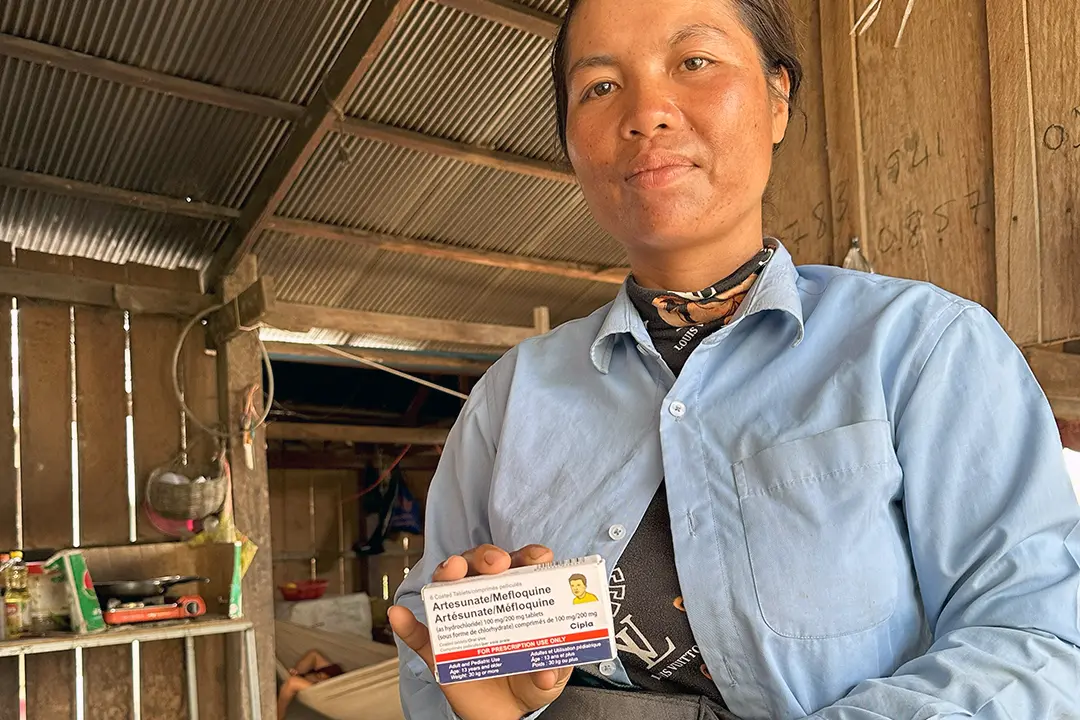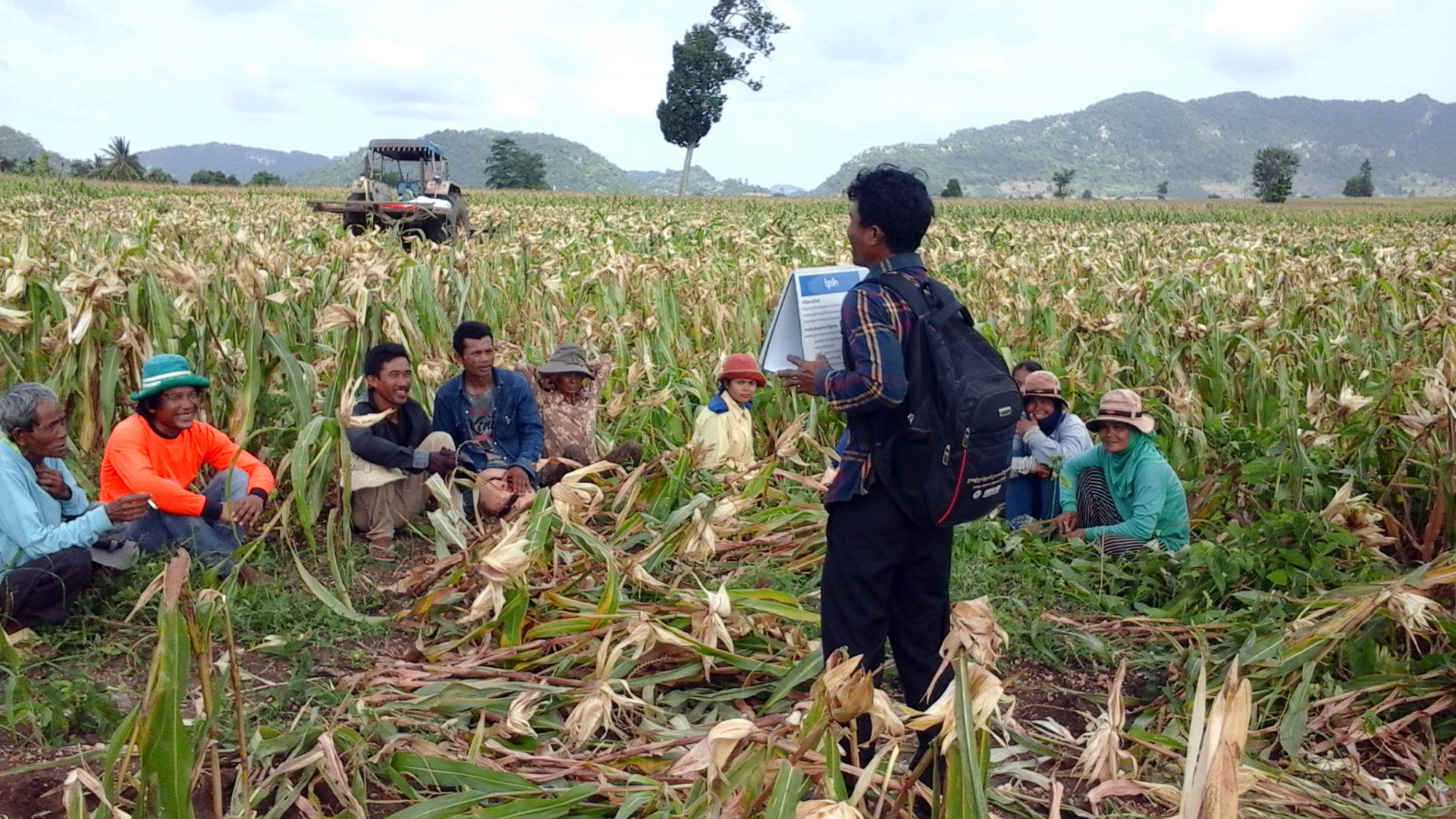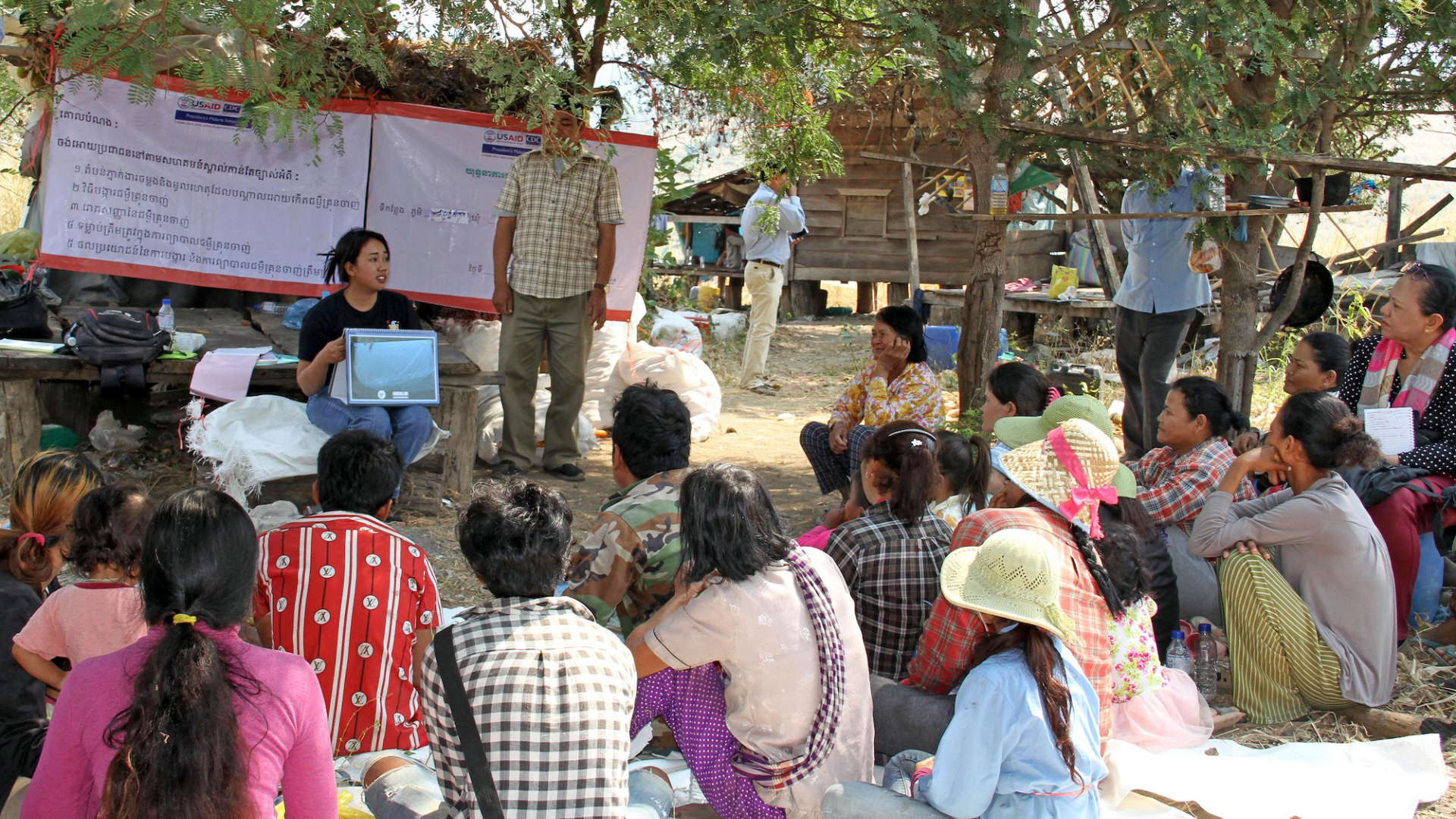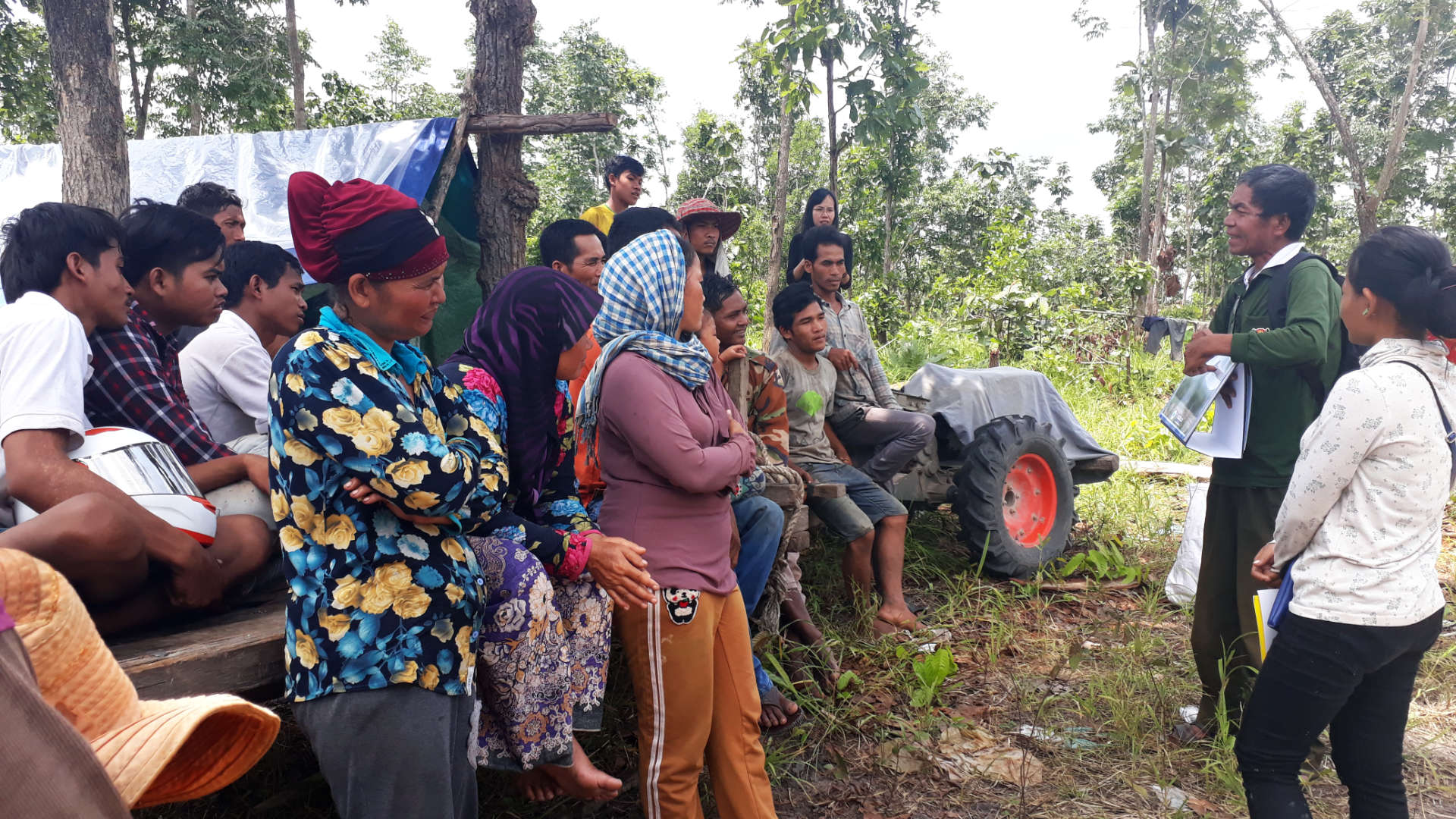Five years ago, Vuthy SaoRy – a farmer residing in Rokkhak Kiri district, Bassak commune, Battambang province in Cambodia – was a full-time housewife. She, like many others in her village, diligently cared for her family.
SaoRy hadn’t had malaria, but she saw her neighbors contract it. She felt a need to make a difference in her community. Her husband, who had been a village malaria worker (VMW), saw the potential in her to be good at the role, so he encouraged her to begin the training.
No Malaria Deaths Since 2018
VMWs are trained in malaria diagnosis using rapid diagnostic tests, case management, and referral. They ensure high coverage of malaria testing for anyone with a fever and early initiation of effective malaria treatment for those with confirmed malaria.
The Cambodia Malaria Elimination Project 2 (CMEP2) – funded by the U.S. President’s Malaria Initiative (PMI) and USAID and implemented by URC – supports 502 of the 5,460 VMWs in Cambodia. CMEP2 is working with the Cambodia National Center for Parasitology, Entomology, and Malaria Control to eliminate malaria from Cambodia by 2025.
CMEP2 and other efforts have contributed to a significant success: there have been no confirmed malaria deaths in Cambodia since 2018.
Overcoming Fears and Bias
SaoRy didn’t like blood and needles, but she wanted to contribute to malaria elimination by becoming a VMW. With support from CMEP2, she overcame this fear and acquired the necessary VMW technical skills in about one year.
Initially, people were skeptical of SaoRy’s capabilities, perceiving her solely as a housewife focused on her family. However, after receiving malaria-specific technical and capacity building training from USAID and PMI’s CMEP and CMEP2 projects, she gained the necessary confidence and knowledge to effectively fulfill her duties and assist the community.
Today, SaoRy is a confident VMW. She regularly educates villagers and forest-goers about malaria prevention, conducts malaria blood tests for more than 100 people annually, and provides treatment when needed.
SaoRy is proud of her work. She has selflessly sacrificed her time and income to contribute to the elimination of malaria in Cambodia. Before distributing insecticide-treated bed nets, she ensures that people are educated on their proper use. Additionally, she promotes the importance of wearing long sleeves when entering the forest.
On difficult days, SaoRy does think about giving up her role as a VMW.
“One thing that always kept me motivated was the belief that our mission to eliminate malaria by 2025 is within reach,” SaoRy said. “With a little more effort, I am confident that I can eliminate malaria in my area.”
With SaoRy’s continued efforts, along with those of other VMWs, Cambodia is poised to meet the 2025 elimination target.



